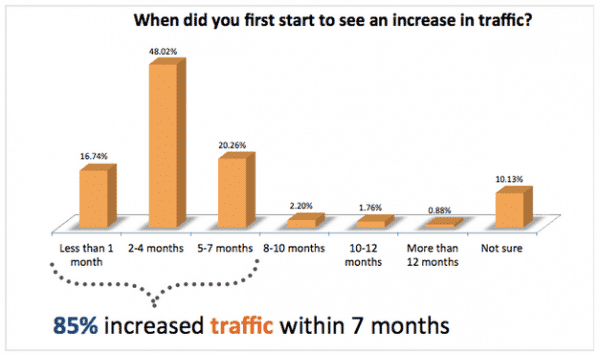TOKYO (Reuters) - Japanese Prime Minister Shinzo Abe appears poised to raise the curtain on Act Three of his "Abenomics" drama with a decision to join talks on a U.S.-led free trade pact, seen by some as a test of his appetite for vital economic reform.
Abe's first two acts - big spending and a push for hyper-easy monetary policy aimed at reviving the economy - have met little political opposition, since few vested interests are harmed.
The next installment on structural reform - or as Abe prefers to call it, the "Third Arrow" in his policy quiver - now looks likely to begin with a decision in coming weeks to join talks on the Trans-Pacific Partnership (TPP), Japanese media say.
Financial markets are taking the expected decision as a sign that Abe - not known as an economic reformer in the past - is committed to opening Japan's economy, even at the expense of supporters of his conservative party, including those in the powerful farming lobby.
"I think it is sort of a test case whether Abe can push through reforms against certain interests in favor of others," said Robert Feldman, chief economist at Morgan Stanley MUFG in Tokyo. "He's delivered on monetary policy, now he'll have delivered on a politically difficult reform."
Echoing that sentiment, Nomura Securities this week raised its forecast for the Nikkei share average to 14,500 by the end of this year from an earlier 12,500, mostly on TPP hopes. That suggests a rise of 28 percent from current levels.
Skeptics, however, questioned whether joining the trade talks would really signal Abe's commitment to economic reform.
"He wants to tick the right boxes politically. He wants to project the image of a reformer," said Aurelia George Mulgan, a professor of Japanese politics at the University of New South Wales. "Whether he has the convictions, beliefs and ability to deliver in the areas that are required for economic growth is a big question mark. My answer is 'No'," Mulgan said.
Abe's government is to unveil a growth and competitiveness strategy including deregulation steps in June, and optimists see a decision on TPP as a harbinger of further reforms needed to unlock growth in Japan's long-stagnant economy.
The International Monetary Fund has urged Japan to join the TPP and carry out other economic reforms, including cutting Japan's huge public debt, relaxing regulations that stifle growth in sectors such as healthcare, and changes in the labor market to allow more immigration and older-age employment.
CHINA STRATEGY?
Abe, 58, returned to Japan's top job after his Liberal Democratic Party's (LDP) big election win in December.
Three months later, his voter ratings have risen to about 70 percent, a rare feat for a Japanese leader but a welcome sign for his party ahead of a poll in July for the upper house, where the ruling bloc lacks a majority. An election win would smooth the passage of legislation in parliament for Abe and keep him from becoming just one more revolving-door leader.
The 11 countries involved in the TPP talks, including the United States, Canada and Australia, which together account for 20 percent of global exports, have pledged to clinch a deal scrapping as many tariffs as possible. If Japan joins, it will face pressure not only to open up its agriculture market but service sectors such as insurance.
Abe's LDP had promised not to join the three-year-old TPP talks if that meant promising beforehand to scrap all tariffs.
That was never a real prerequisite. But Abe got political cover to join the talks at last week's summit with U.S. President Barack Obama, when the two leaders agreed that while all goods would be on the table for discussion, a prior pledge to scrap all tariffs was not needed just to start talking.
The joint statement referred to "trade sensitivities, such as certain agricultural products for Japan and certain manufactured products of the United States".
Japanese media said Abe had been expected to announce a decision as early as Thursday but will now take more time to soothe LDP worries about angering their supporters.
"The longer he leaves the decision, the more opposition will build," Mulgan said, noting Abe's two predecessors from the Democratic Party, now in opposition, had tried to join the talks but failed in the face of a rift in their own fractious party.
Japan's biggest business group, the Keidanren, has lobbied hard for TPP out of fear a failure to join would mean exporters fall further behind regional rivals, such as South Korea and China, while the country's powerful farm lobby is opposed.
Some experts, though, suggest a strategic desire to bolster the U.S.-Japan alliance in the face of a rising China may have more to do with Abe's motivation that any commitment to reform.
"This is Abe's way of spiting the Chinese without going to a war shrine," said Simon Evenett, a professor of international trade at St Gallen University in Switzerland.
During his 2001-2006 term, Prime Minister Junichiro Koizumi angered Beijing by visiting Tokyo's Yasukuni Shrine for war dead, seen by China as a symbol of Japan's past militarism.
Others echoed that view. "I think the main goal is not what TPP could do to open Japan's economy ... The main goal is a strategic one of countering the Chinese," said Daniel Sneider at Stanford University's Shorenstein Asia-Pacific Research Center.
How much economic impact joining TPP would have is unclear, and for sure, any effect will take time. "TPP alone may have a limited impact on GDP but it is significant taking into account (the positive impact on progress toward) other trade deals," said Yorizumi Watanabe, a professor at Keio University in Tokyo.
(Additional reporting by Alan Wheatley in London; Editing by Neil Fullick)
Source: http://news.yahoo.com/japans-abe-aims-polish-reform-credentials-tpp-trade-071317090--business.html
tesla model x lou gehrig toby mac blue ivy carter photos purple squirrel blade runner close encounters of the third kind














